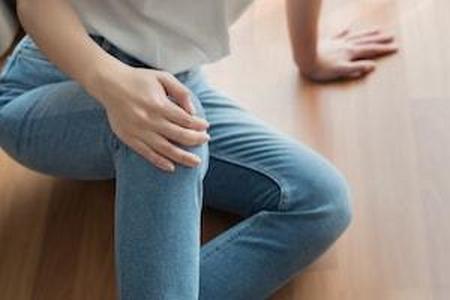Legal Options When You Are Injured in a Slip and Fall Accident
 People are injured in slip and fall accidents on a daily basis, and depending upon the height of the fall, the type of surface, and the victim’s ability to react, these accidents can easily lead to serious injury. Slip and falls can happen anywhere, including at a store, a neighbor’s home, or a public sidewalk. All property owners, including the government, have a duty to keep their premises in a safe condition, and failure to do so can lead to legal liability if a person is injured as a result.
People are injured in slip and fall accidents on a daily basis, and depending upon the height of the fall, the type of surface, and the victim’s ability to react, these accidents can easily lead to serious injury. Slip and falls can happen anywhere, including at a store, a neighbor’s home, or a public sidewalk. All property owners, including the government, have a duty to keep their premises in a safe condition, and failure to do so can lead to legal liability if a person is injured as a result.
In Illinois, winter will be here soon enough, and everyone knows the dangers presented by the accumulation of snow and ice. A New Lenox man sued Lowe’s earlier this year after he fell on an uneven surface covered in water, ice, and snow. Given the fact that everyone faces this type of risk when they venture out of their homes, it is important to understand how the law addresses legal responsibility if a fall and injury do occur. In addition, people should understand how liability for the accumulation of snow and ice is handled under Illinois law.
General Rules for Slip and Fall Liability
Property owners have a duty of care to protect people visiting for business or social purposes from harm (trespassers receive no legal protection against injury, except for intentional reckless acts by the property owner). Specifically, all property owners, whether private or open to the public, have a duty of reasonable care to keep their premises safe by fixing problems or warning guests of dangerous conditions they would not otherwise reasonably understand exist. This includes a duty on the part of the owner to inspect for potential problems and remedy them within a reasonable time. For example, if a store employee sees a spill on the floor in an area used by customers, waiting four hours to clean it up is likely too long, and this delay can expose the business to liability if a customer slipped, fell, and was injured in the interim.
One additional issue to keep in mind is that property owners will typically try to lay some of the blame on the victim under the legal theory of comparative fault. If the victim is found to share some of the responsibility, as long as it is less than 50 percent, any compensation awarded would be reduced in proportion to the percentage the victim was responsible. Those who are more than 50 percent responsible for their own injuries cannot recover anything under Illinois law.
Law on Snow and Ice Accumulation
In regards to slip and fall accidents due to accumulated snow and ice, Illinois has a somewhat restrictive rule that says only “unnatural” accumulation of snow and ice will subject a property owner to liability. Essentially, if the snow and ice naturally build up due to weather conditions, including ice created from tamped-down snow, unsalted or shoveled sidewalks, or puddles formed in building doorways from melted snow, no liability exists.
However, one major exception is if the property owner or management company agreed to remove snow and ice in the building’s lease. In addition, unnatural accumulation typically involves features or defects on the property that cause the snow and ice to accumulate in a certain location or actions by the property owner that cause the snow and ice to build up in a certain place. Slip and fall cases are very fact-specific, and an experienced personal injury attorney can assess the legal options in each case.
Talk to a Lombard Slip and Fall Attorney
Falling down may be a source of amusement for some, but for those injured in these accidents, they are no laughing matter. The dedicated DuPage County personal injury attorneys at Mevorah & Giglio Law Offices understand how serious these cases are, and we will work to get you the compensation you deserve. Do not hesitate to contact us today at 630-932-9100 for a free consultation.
Sources:
http://www.ilga.gov/legislation/ilcs/ilcs3.asp?ActID=2048&ChapterID=57
https://patch.com/illinois/joliet/lowes-new-lenox-faces-slip-fall-lawsuit
 English,
English,
 Spanish,
Spanish,
 Polish,
Polish,
 Urdu
Urdu













 Make a Payment
Make a Payment



